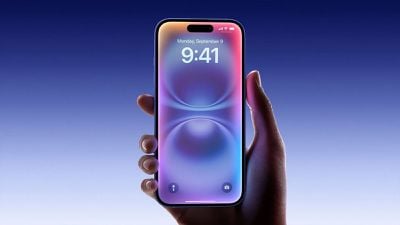Target's early Black Friday sale has officially begun today, with an online shopping event that will run through Saturday, November 8. There are quite a few major discounts in this sale, including sitewide savings on Beats headphones, TVs, Apple accessories, home appliances, and more.
 Note: MacRumors is an affiliate partner with Target. When you click a link and make a purchase, we may receive a small payment, which helps us keep the site running.
Note: MacRumors is an affiliate partner with Target. When you click a link and make a purchase, we may receive a small payment, which helps us keep the site running.
Target's Black Friday Schedule
Target's Black Friday sale begins today with this week's three-day event and thousands of deals available sitewide. Target is also offering a "Deal of the Day" every day through December 24, with many exclusive deals available only to Target Circle members.
Additionally, a new lineup of deals will drop every Sunday in November and last through the following Saturday. All of this leads up to the week of Black Friday, where shoppers can expect even more discounts and offers both in Target stores and online.
Target's Early Black Friday Sale
Like many retailers, Target's early Black Friday offerings are wide and varied. You'll find notable markdowns on video games, appliances, TVs, smart home products, speakers, headphones, and more this week.
Shoppers should note that some of the deals below do require Target Circle, which does have a free tier and is worth signing up for if you're interested in any of these offers. Once you're a member, the deals will be applied automatically at checkout.
Apple Accessories

Target's early Black Friday sale includes a few Apple accessories on sale, with the highlight being discounts on the new iPhone 17, iPhone 17 Pro, iPhone 17 Pro Max, and iPhone Air cases.
- Magic Keyboard Folio for iPad - $199.99 ($50 off)
- iPhone 17 Silicone Case - $39.99 ($10 off)
- Beats iPhone 17 Pro Case - $35.99 ($10 off)
- iPhone 17 Pro Clear Case - $39.99 ($10 off)
- iPhone 17 Pro Silicone Case - $39.99 ($10 off)
- iPhone 17 Pro TechWoven Case - $49.99 ($10 off)
- Beats iPhone 17 Pro Max Case - $35.99 ($10 off)
- iPhone 17 Pro Max Clear Case - $39.99 ($10 off)
- iPhone 17 Pro Max Silicone Case - $39.99 ($10 off)
- iPhone 17 Pro Max TechWoven Case - $49.99 ($10 off)
Headphones

- Beats Solo Buds - $69.99, down from $79.99
- Beats Solo 4 Wireless Headphones - $129.99, down from $199.99
- Beats Fit Pro - $179.99, down from $199.99
- Powerbeats Pro - $170.99, down from $249.99
- Beats Studio Pro Wireless Headphones - $199.99, down from $349.99
- Bose Ultra Open-Ear True Wireless Earbuds - $229.99, down from $299.99
- Sony WHCH720N Wireless Noise-Canceling Headphones - $99.99, down from $179.99
TVs

- 32-inch Vizio LED Smart TV - $99.99, down from $119.99
- 43-inch LG 4K Smart TV - $229.99, down from $279.99
- 55-inch TCL 4K HDR QLED Smart Google TV - $279.99, down from $449.99
- TCL 4K HDR QLED Smart Google TV - $379.99, down from $549.99
- 65-inch LG 4K Smart TV - $399.99, down from $479.99
- 65-inch Samsung The Frame 4K Smart TV - $1,499.99, down from $1,699.99
Streaming Devices
- Fire TV Stick HD - $19.99, down from $34.99
- Fire TV Stick 4K - $29.99, down from $49.99
- Fire TV Stick 4K Max - $39.99, down from $59.99
More Deals
- Keurig K-Mini Go - $49.99, down from $99.99
- Instant Pot 9-in-1 Pressure Cooker - $69.99, down from $129.99
- Ninja Professional Plus Blender - $99.99, down from $149.99
You can find all the Apple Black Friday Deals currently available in our dedicated post. For everything else, we're keeping track of all of the season's best Apple-related deals in our Black Friday roundup, so be sure to check back throughout the month for an updated list of all the most notable discounts you'll find for Black Friday 2025.
Deals Newsletter
Interested in hearing more about the best deals you can find as we head into the holidays? Sign up for our Deals Newsletter and we'll keep you updated so you don't miss the biggest deals of the season!



































 Note: MacRumors is an affiliate partner with some of these vendors. When you click a link and make a purchase, we may receive a small payment, which helps us keep the site running.
Note: MacRumors is an affiliate partner with some of these vendors. When you click a link and make a purchase, we may receive a small payment, which helps us keep the site running.











